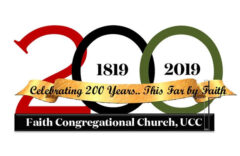2 Ministers Are Trying To Revive The Campaign To End Poverty That MLK Started
He couldn’t stop thinking about them, their wide eyes and the silent hunger that lay behind them. Staring up at the ceiling from his motel bed, Dr. Martin Luther King Jr. told his closest confidant, Rev. Ralph Abernathy, that the impoverished children they visited earlier that day were cemented in his mind.
It was June 1966 and the pair had stopped by an early Head Start facility in Marks, Mississippi, which is the seat of Quitman County, a devastatingly poor area in the alluvial plains of the Mississippi Delta that was thought to be the most impoverished in the country at the time. Quitman had everything King fought against: A lack of job and home security, particularly for the black sharecropping families who often lived in shacks on the plantations where they worked unpredictable harvests. Abysmal schools, where black students were taught in poorly ventilated classrooms with out-of-date textbooks and school lunches they couldn’t afford.
But it was what King saw in that Head Start facility, a program developed to prepare young children for school, that would push him to launch the 1968 Poor People’s Campaign, an effort to demand economic security and an improvement in the quality of life for impoverished Americans. After watching a teacher cut an apple into quarters in order to feed four children, he broke down in tears — an unusual display of public emotion from King. Ultimately, he made the small town of Marks the launching pad for his campaign’s march on Washington, planned for the spring of 1968.
Read the entire article here.
43 total views , 1 views today

